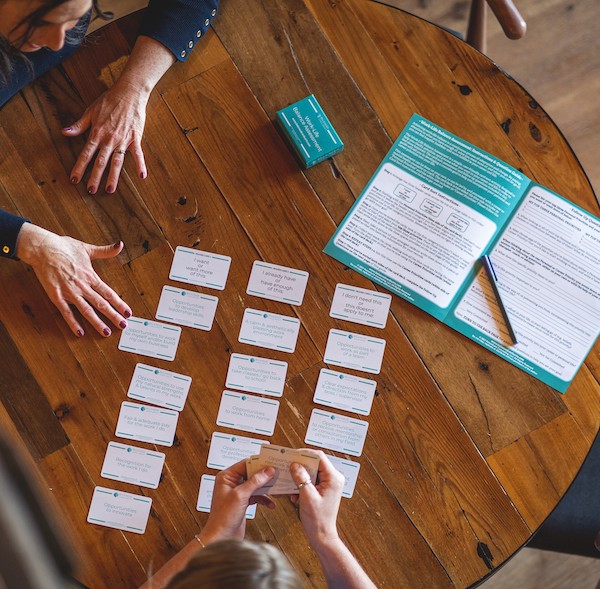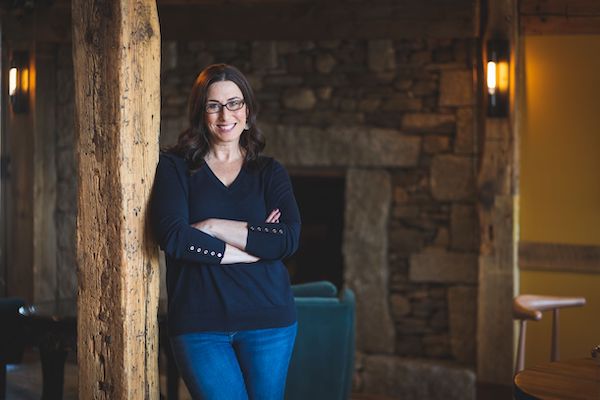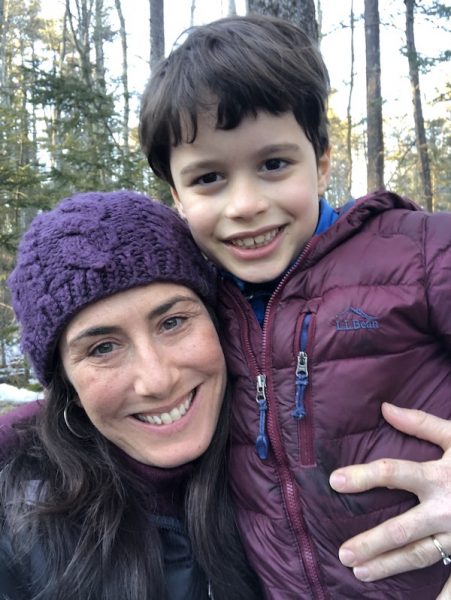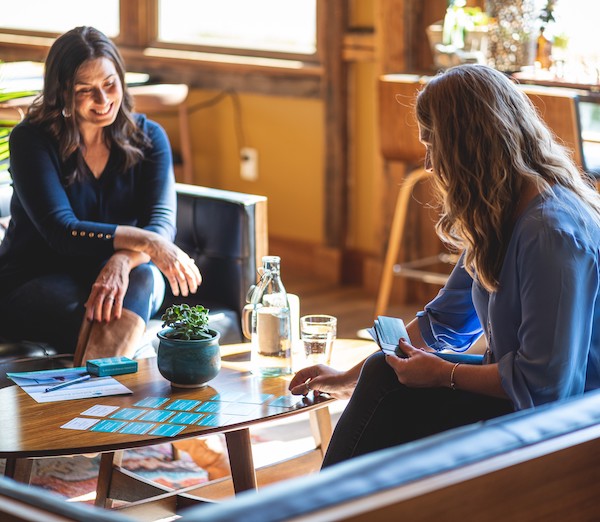You can be in the workforce for decades, many decades, and still struggle to find a healthy work-life balance. I speak from experience. Work has always crept into nearly all aspects of my life. It knows no boundaries. Or more honestly put, over the years, I have not been great about setting boundaries.
I recently did an interesting and helpful card sort assessment that was developed by Anush Hansen, a career and wellness counselor based in Kennebunk, Maine. Here’s how it works:

You have a deck of 30 cards, blue on one side and white on the other. The blue cards represent personal priorities and the white cards represent career priorities. There are also three labeled cards that you put across the top of the table in this order:
- I want or want more of this
- I already have or have enough of this
- I don’t need this or this doesn’t apply to me
Starting with personal priorities you place each card from the rest of the deck under the applicable top card. For instance, I put that I wanted more time for fun and relaxation, I had enough coping strategies to deal with stress and anxiety, and I didn’t need reliable and accessible childcare.
Once the cards are all sorted, you look at the first column and select your top three priorities. Mine were more quality sleep, more time for my hobbies, and more quality time with my family and/or my children. You write down your top three and take a picture of the entire assortment.
You then flip the cards over to the career priority side and repeat the previous steps. When you’re done, you pick one or two goals that you’d like to start working on immediately and answer 15 questions about your choice. Such as why is this priority important to you? How committed are you to incorporating it into your career or personal life? How will you hold yourself accountable as you work toward your goal?
I chose to get more quality sleep because I know the importance (especially for my aging brain) of getting a good night’s sleep, and yet I will repeatedly stay up late. I’ve been pretty good about getting to bed no later than 10. Still working on not looking at my phone.
Doing the assessment was fun and pretty easy, although it forces you to think about what really does matter to you. What I appreciated most is that it was so useful in helping me come up with some specific measurable goals.

As I mentioned at the beginning, Anush Hansen, who developed the Work-Life Balance Assessment card sort, is a career and wellness counselor. Her expertise comes from both the career and the personal sides of her life. Yes, balance is a struggle for her, as well.
Anush has nearly 18 years of experience in the public health field designing and developing health-related assessments and surveys. That was before she decided to become a counselor.
Early in her career, she did hard quantitative epidemiologic research — not much human interaction. She found her true calling when she took a job as a researcher in the Office of Health Promotion at the University of Vermont.
It was there that she started doing more qualitative research, that is she talked to people about their health behaviors, mostly around smoking, and helped develop cessation and prevention strategies.
I would speak with kids or caregivers or parents or health care providers and learn about their experiences for whatever project we were working on. I would help pull that data together — their stories and their realities — and develop a presentation or paper that offered an option or potential solution for the challenges they brought up in their interviews and in focus groups. When I started talking directly with people, it just came naturally and it didn’t feel like work. I loved doing it and that’s where I got the itch for more of a direct connection with people.
Anush Hansen, MA, MPH, LPC, Career and Wellness Counselor
A change of careers
Anush eventually left Vermont for Maine and she began working for the Muskie Institute at the University of Southern Maine (USM) doing chronic disease prevention studies. It was in that position that she really began working on developing assessment tools and different ways of collecting data. It was also when she decided to get an MA in counseling psychology at the University of New Hampshire.
It was a huge personal commitment because she was still working in Portland at the time, and she was constantly confronted with lessons about work-life balance.
I am a non-stop work in progress when it comes to work-life balance. When I graduated with my counseling degree, I was expecting to become a full time counselor and got my first job out of grad school working in college counseling. But at the time, I was relatively newly married and we were trying to have a baby. That took a very, very long time, three years and a lot of doctor’s appointments and a lot of stress. It really impacted my ability to be as available for my clients as I wanted to be. When we finally did have a baby, I was still working and experienced a lot of anxiety. I got to a point where my doctor actually said, you know, I think it would be a good idea for you to take a break from being other people’s counselor, and focus on you and your baby. That is my most poignant example of how my own mental health has impacted my career trajectory. So I left counseling, and didn’t go back to it until my son was in kindergarten and I opened my current practice. I really focused in on the fact that I wanted my own practice. I’ve always love career counseling and I love helping people uncover what they want, who they are, and how they can align who they are with what they do.
Anush Hansen

In February 2020, Anush had built her practice up to nearly full capacity and had just held a successful workshop for women working on career values and development. She made sure she could meet her son at the bus after school and also have time for herself. Things were good.
I was like, Oh my gosh, I did it. I was just so excited, and then COVID hit and it almost all went away.
Anush Hansen
She switched to online appointments, but for various reasons, several clients didn’t want to or couldn’t do it. By May she was down several clients and thought she might have to abandon her practice, but she stuck with it and by last summer things picked up.
Recently, Anush has seen a dramatic uptick in client requests. She thinks it’s because the pandemic made people re-evaluate what is most important to them. They’ve enjoyed more flexible work schedules, for example, ones they can set for themselves.
Obviously, there are all kinds of stressors that have come with COVID, but as people are going back to work I think there are things they want to hold on to, those changes they had to make during COVID that are working for them really well.They got to step away and think about what was and wasn’t working. I think they’re being more intentional about which pieces they want to keep and which ones they want to let go of and how they want their life to look for them and their famly.
Anush Hansen
It was during the pandemic when the number of clients she was “seeing” started going up again and she was juggling working from home and helping her son with his online schooling (he was now in first grade) that Anush developed and created her card sort assessment.

She said she loves card sorts because they don’t give you a score or a type, they just help you organize your thoughts and see what your values, skills, and priorities are, right in front of you.
As you’re moving the cards around, you’re processing and thinking through and kind of organizing these ideas and putting words to some of these thoughts or the overwhelm that you’re feeling. It just kind of lays it all out in front of you, and they’re process oriented.
Anush Hansen
Anush hopes her card sort will be a helpful tool for other counselors and anyone who seeks balance in their life. it’s one thing to say you want it, but another to figure out exactly what you might add or subtract to make it happen. When she works with someone she says it’s from the intersection between career exploration and career satisfaction but within the framework of mental health and wellness.
If there’s too much pressure at work it will affect your personal life. If you’re not getting enough physical activity or have poor nutrition, it will affect how well you perform at work. It’s all connected.
We’re never done with work-life balance. You don’t get it and then say I’m balanced and I never have to pay attention to it. I think of work-life balance as a lifelong practice, just like any other thing that can change as things shift in our lives. We all are going to face and have faced really hard things. If you’re someone who’s working in a specific career and then you are diagnosed with some illness, you have to shift your priorities to make sure you can take care of yourself. So, again, I think of work-life balance as something that is always evolving, and isn’t going to look the same when you’re 25 versus 45, or 65, or 80.
For more information about Anush and her practice visit Kennebunk Counseling and to learn more about her Work-Life Balance Assessment card sort, visit Balanced Card Sorts.

Leave A Comment